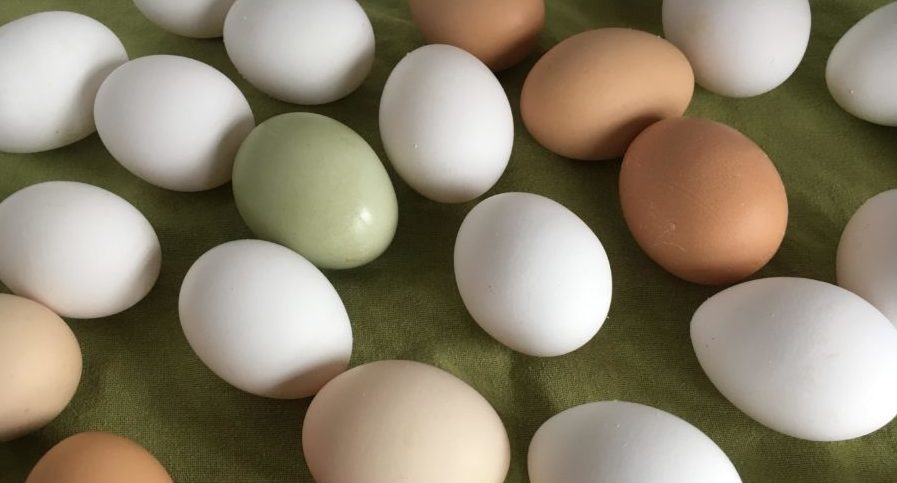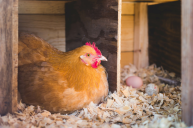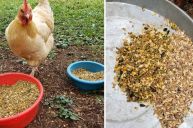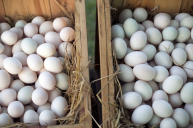WATCH NOW:
How can you ensure your flock lays the healthiest possible eggs?
One of the biggest reasons for raising chickens is to take advantage of fresh eggs! But how do you ensure that your eggs are better than the ones at the grocery store?
Here are eight tips to make your eggs the healthiest they can be:
1. Feed the best quality food you can find.
https://www.instagram.com/p/CB569jgA6_E/
Your egg-laying chickens need a high-quality feed with 15-18% protein and around 3% calcium. You really should look for the freshest feed you can find. Once ground, grains will begin to grow stale and slowly begin to lose their nutritional effectiveness.
Why pay money for stale feed with less nutrition? Try making your own.
2. Supplement with greens.
One of the completely under-appreciated benefits of having backyard chickens is that they LOVE weeds and greens. Why is this a benefit to you? Weeding the garden when you have chickens is totally different then weeding the garden without a flock.
Filling a wheelbarrow high with weeds seems much easier and more fun when you have chickens who will greet a weed-filled wheelbarrow (or two!) delivered to the poultry run with something that looks like chicken joy. They LOVE picking through a pile of pulled weeds. Chickens will eat the leaves, any seedbeds, and will search for insects.
We leave our compost bin in the chicken pen for the chickens to pick through and we regularly give them piles of weeds.
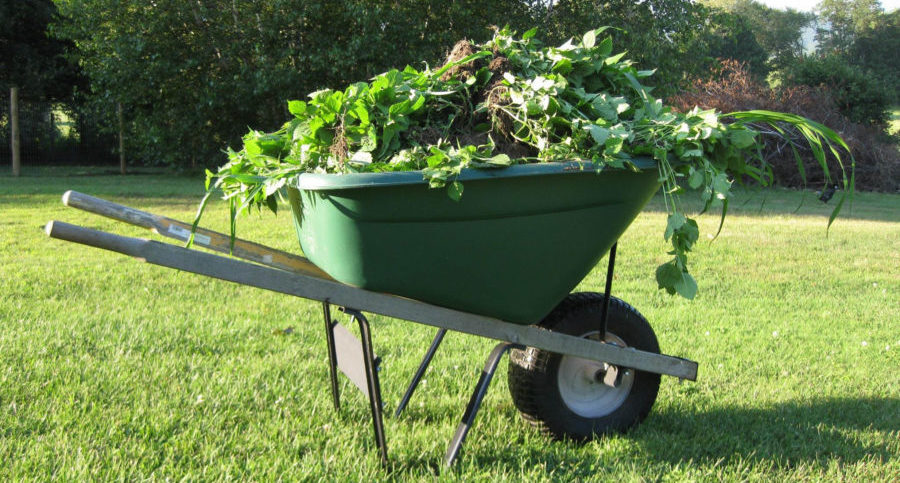
3. Offer calcium supplements.
Sometimes hens require extra calcium, one of the ingredients in strong egg shells. Provide crushed oyster shell or crushed egg shells to your hens so they can supplement their diet as needed.
We offer it free choice in its own container in the coop. We also provide grit, which helps the hens digest their food, but does not have a direct effect on egg production.
4. Free range when and where possible.
Studies have shown that free-range eggs are lower in cholesterol than conventional store-bought eggs and are higher in some nutrients like vitamin D. However, not all backyard flocks have access to a large area or the ability to roam free.
The exercise, greens, and insects your chickens find when they have free range is so beneficial that you should let them wander when and where you can. Word to the wise: fence off tomatoes and other brightly-colored garden produce or you may experience peck damage.

5. Good housekeeping in nest boxes make for cleaner eggs.
Washing dirt off of eggs takes extra time, and dirty eggs may potentially have more germs. For the cleanest eggs, provide fresh shavings or straw regularly in nest boxes, or clean mats periodically.
Good housekeeping in nest boxes should result in clean eggs.
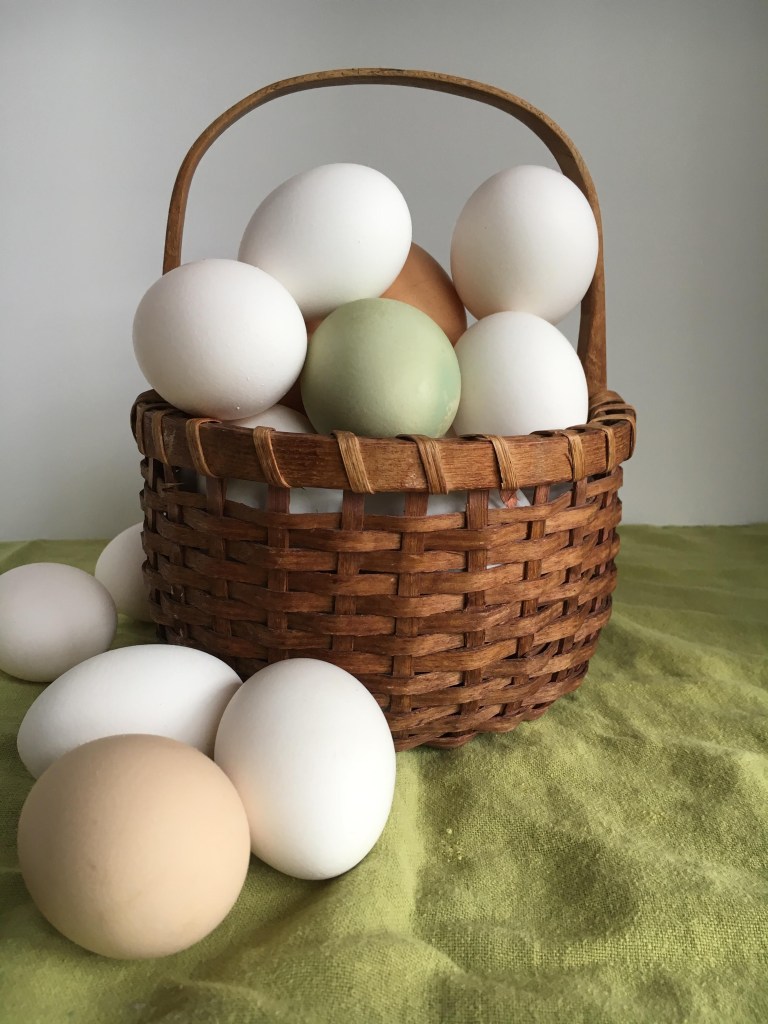
6. Provide fresh water in clean containers daily.
Your chickens need an adequate supply of fresh water daily, served in clean containers. Take a close look at your flock's water containers. Are they grimy? If yes, use a chicken-designated scrub brush to remove dirt and algae, and rinse well.
Consider having enough water containers to alternate and let half the containers and the scrub brush air dry after cleaning while the other half water your flock.
7. Be aware of potential toxins in your yard.
Clean up any paint chips if you have an older house (lead-based paint is not healthy for you or your chickens). Be aware of poisonous plants your flock might try to nibble such as foxglove flowers.
Look around your environment and be proactive about potential toxins, and research before feeding your flock leftovers (avocados, for example, are not safe to feed your flock).

8. If you have a sick chicken, never medicate without the advice of a vet.
Medicating your chickens by reading advice on the Internet is not wise and may not effectively treat your chicken for illness. Consult a vet (look up an avian vet here) and be sure to ask the vet when it will be safe to eat eggs again after medicating.
Observe any "egg withdrawal" time period the vet gives you. You and anyone else who eats your flock's eggs shouldn't be consuming whatever medication your chickens are getting.

Some awesome chicken breeds that are good egg layers include: the Leghorn, Australorp, Buff Orpington, Plymouth Rock, Sussex, and Ameraucana to name a few. These egg layers lay a range of white eggs, brown eggs, and even blue ones!
These tips will make for the healthiest eggs from your backyard flock. Follow all of them and you know you have done your best to ensure your eggs measure up!
Do you have any tips we didn't cover? Let us know in the comments below!
All photos via Daphne Cybele
This article was originally published May 16, 2017.
